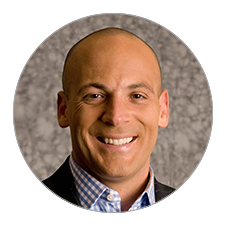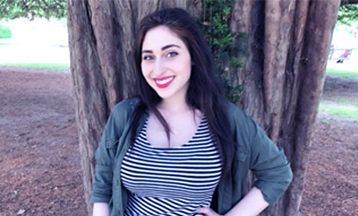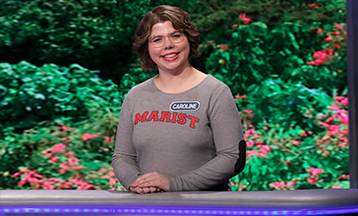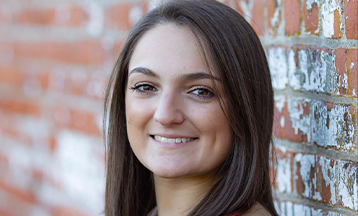-
About
Admitted Student Days
• Saturday, March 28
• Sunday, March 29
• Saturday, April 11Accepted Students: Be sure to register for one of our Admitted Student Days and explore all that Marist has to offer.
About
-
Academics
Admitted Student Days
• Saturday, March 28
• Sunday, March 29
• Saturday, April 11Accepted Students: Be sure to register for one of our Admitted Student Days and explore all that Marist has to offer.
Academics
-
Admission & Financial Aid
Admitted Student Days
• Saturday, March 28
• Sunday, March 29
• Saturday, April 11Accepted Students: Be sure to register for one of our Admitted Student Days and explore all that Marist has to offer.
Admission & Financial Aid
-
Student Life
Admitted Student Days
• Saturday, March 28
• Sunday, March 29
• Saturday, April 11Accepted Students: Be sure to register for one of our Admitted Student Days and explore all that Marist has to offer.
Student Life
- Athletics
Image of Brandon Tierney

Brandon Tierney
North Caldwell, NJAcademic School
Communication & the ArtsCampus
New YorkBrandon Tierney ’96 gets paid to talk about sports on the radio every day, which for him is a dream job. Weekdays from 12 a.m. - 5 a.m. ET, he hosts with Sal Licata on WFAN. As a student at Marist, Tierney studied communication with a concentration in journalism (this was before the School of Communication and the Arts introduced its concentration in sports communication and before the Center for Sports Communication was established). He was also a proud member of Marist’s Division I baseball team. Looking back, he says, “If you had told me as a student that in 2019 I’d be hosting a show broadcast nationally to 150 affiliates and with a TV simulcast, appearing on CBS’ Sunday morning NFL show, and calling Big East basketball games, I wouldn’t have believed you. This goes beyond all of my expectations.”
Back in the early 1990s, Tierney was a kid from Brooklyn who was a good writer, wanted to play baseball, and was looking for a college not too far from home. On paper, Marist seemed to fit the bill. As Tierney remembers it, “I knew Marist had a strong communication program, and I knew I wanted to juggle playing baseball with being a broadcaster, so it made sense.” What he didn’t anticipate was that the good feeling he got when he visited campus for the first time would turn into one of the most meaningful experiences of his life. A quarter-century later, the sense of nostalgia is powerful. “My Marist experience means so much to me. As soon as I’m driving up Route 9 toward campus, I start to experience so many emotions and vivid memories. Marist is like an old friend for whom you feel an incredible attachment and fondness.”
Tierney has nothing but good things to say about Marist’s faculty, remembering them as both well informed and always willing to help students. “The transfer of knowledge was seamless,” he recalls. The 1990s were a particularly exciting time for communication majors, as the decade saw incredibly rapid growth in technology, and his classes were able to help Tierney assimilate and master this new wave of communication. Faculty were also understanding of his juggling act with Division I sports. Student-athletes have demanding schedules filled with practice, travel, and workouts, and academic support can be crucial to their success. Says Tierney, “My professors respected my involvement in baseball, especially because I was committed to getting my academic work done. They couldn’t have been more supportive.” He also gives special credit to the Marist Brothers, whose mentorship and advice were a big influence.
Tierney’s time on the baseball team was clearly a key part of his time at the College, and he and his teammates are still close. Marist started its baseball team in 1992, and Tierney played from 1993-96. He admits that the team wasn’t that good back then, but they had a strong camaraderie. “For us, it was all about the process and the struggle. It’s really an experience that can’t be replicated.” And Tierney had plenty of time on the field. He played in 118 career baseball games, with 94 starts, driving in 38 career runs and scoring 40. As a senior in the 1996 season, he set career highs in runs scored (22), RBIs (18), on-base percentage (.395), and fielding percentage (.994).
If that sounds like a memorable baseball career, it is. Yet Tierney remembers it with mixed emotions. He suffered many injuries and is personally disappointed in his contribution to the team. Looking back, he reflects, “I think I wanted it too much and tried too hard. I was thinking about playing baseball professionally rather than focusing on college baseball. My head got cluttered.” Still, even if a professional career didn’t materialize, Tierney has no regrets. “I consider it a life lesson. I wasn’t lacking in effort or diligence, but I learned that your passion must have direction.”
After graduation, Tierney brought both passion and direction to his pursuit of his goal of being a sports broadcaster. Like all successful professionals, he worked hard and got help along the way. His broadcasting career brought him to Allentown, Pennsylvania, Detroit, and San Francisco before returning to New York permanently. Tierney has found sports to be a reflection on society in many ways. Conversant in baseball, football, basketball, golf, and any number of different sports, he has noticed a change in the country’s attitude toward his beloved baseball in recent years. “The slower pace of baseball requires a certain commitment, and this has hurt it a bit with the public since everything in our culture is so sped up. People want excitement, so as a broadcaster, I’ve shifted along with society to be in line with where the country is.”
As a sports broadcaster at the top of his game – and a husband and father – Tierney looks back on his career with a sense of both gratitude and reflection. “I’m incredibly thankful for what I have.” More than two decades out of college, he advises current college students to strike the proper balance of enjoying their college experience but also identifying what they want to do professionally and availing themselves of the many resources on campus that can help them get there. “Know what you want to do, go get it, and don’t let anyone get in your way,” he advises. But he cautions students not to lose their moral compass in pursuit of professional success. “Think about what truly motivates you and remember that hard work and ethics are rewarded. Pursue your goals with vigor, but learn to deal with the inevitable failures.” As someone who regularly talks with members of the public, Tierney even has advice for making our polarized society a better place: “It’s important to listen, especially with those with whom you disagree. You don’t have to abandon your principles, but you need to be willing to converse in a way that doesn’t exacerbate divisions.”
Tierney ends the conversation with a final, philosophical thought: “While only a few people have the physical qualities required to be a competitive athlete, there are no limitations on the mind or human spirit.” For this successful Marist graduate, it seems a fitting reflection on a life well lived and open to whatever the future holds.



